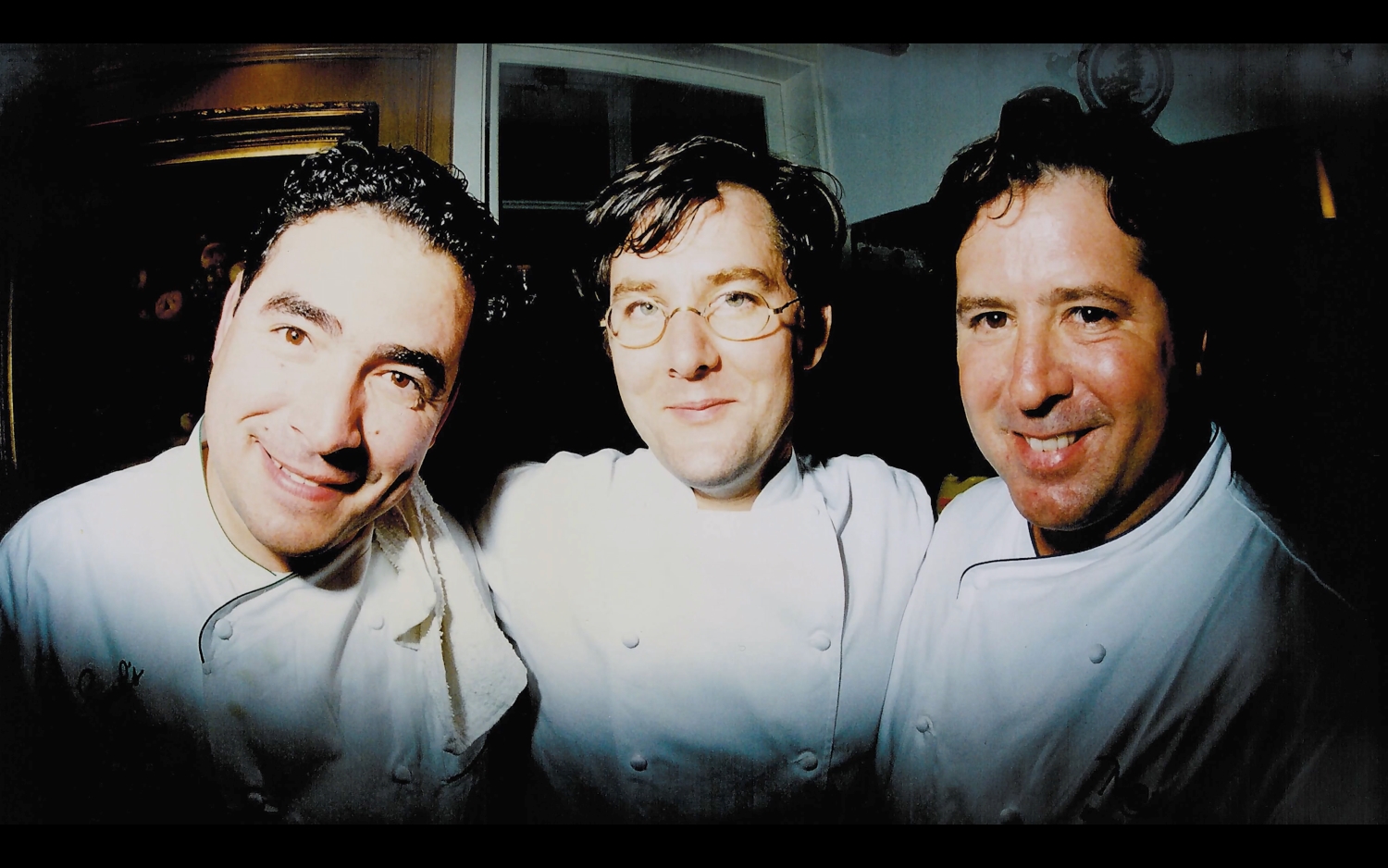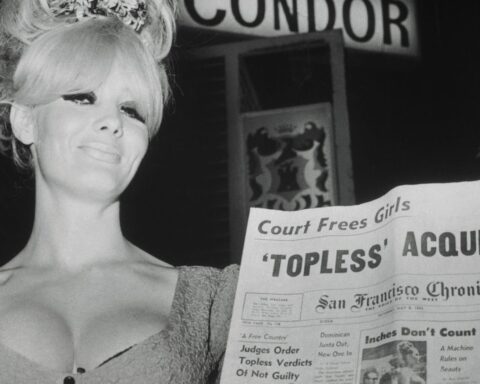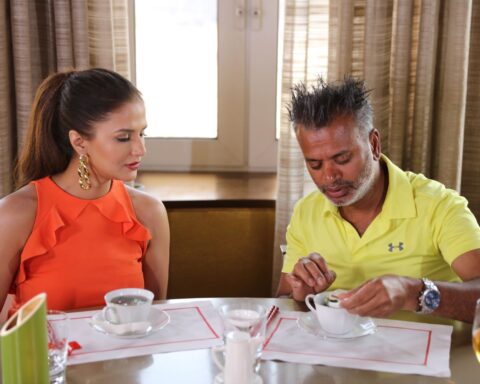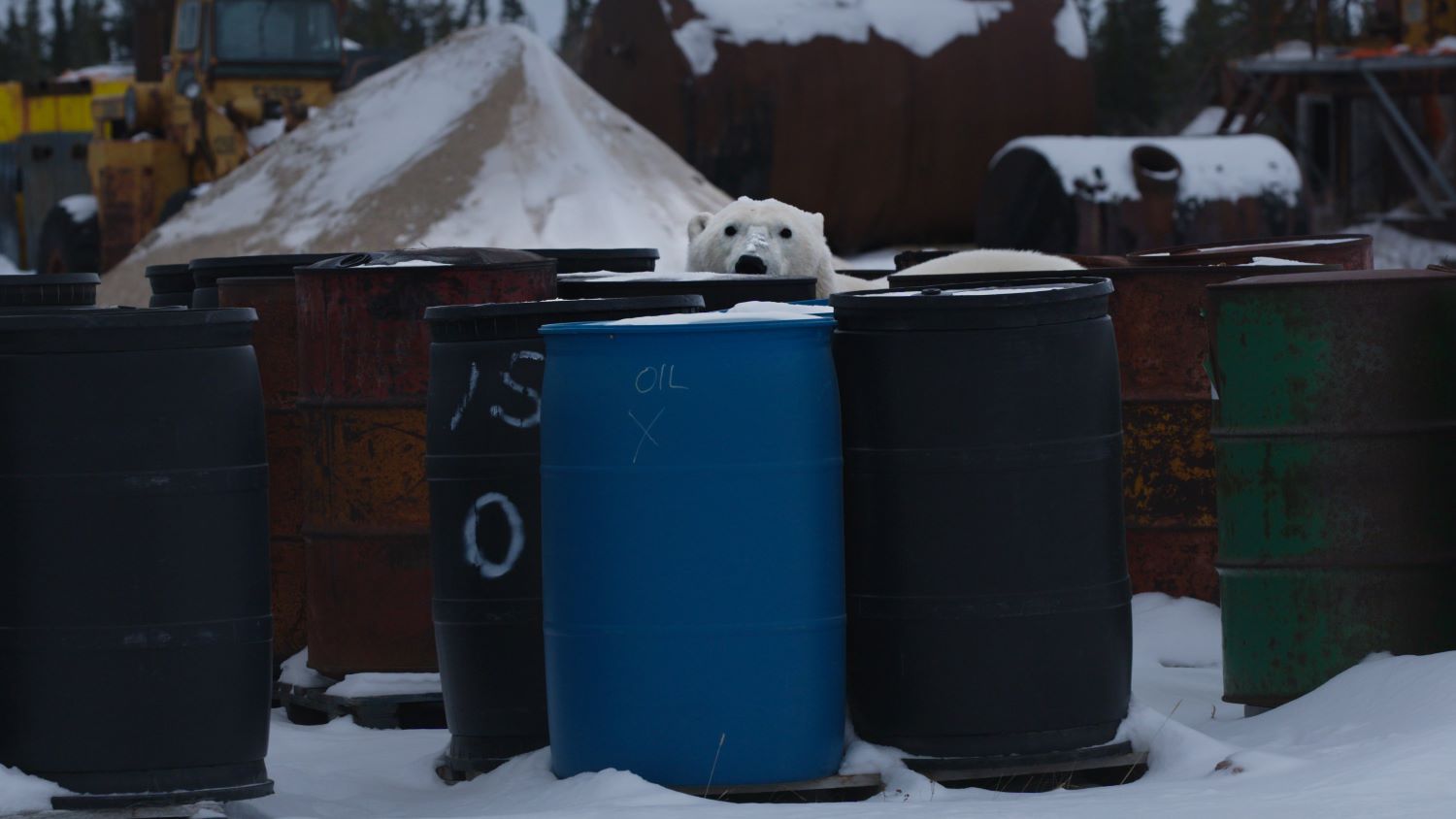Love, Charlie: The Rise and Fall of Chef Charlie Trotter
(USA, 96 min.)
Dir. Rebecca Halpern
The aura of the celebrity chef consistently pleases the palette. Last year’s arthouse satire The Menu, for example, skewered the world of megalomaniacal taskmasters who run their kitchens like boot camps and deliver small plates with big price tags to high falutin’ foodies. Ralph Fiennes’ acclaimed and feared Chef Slawik seems served from the same pot as Charlie Trotter, the late Chicago chef who helped revolutionize American cooking. The Menu finds spot-on satire in Slawik’s creations that draw from the remote island that defines his kitchen’s exclusivity. Beyond Slawik’s devotion to locally sourced ingredients and imaginative pairings, though, one sees Charlie Trotter’s personality within The Menu’s cutting chef.
There’s a moment in Love, Charlie: The Rise and Fall of Chef Charlie Trotter in which the chef mentions the adage “the customer’s always right.” He punctuates it with a comically dramatic pause. While Trotter never reached Slawik’s feat of serving a literal “eat the rich” experience, he displays throughout the documentary a distrust of his clients’ palettes. However, as director Rebecca Halpern builds her portrait of the mercurial chef, Love, Charlie illustrates how Trotter’s ability to steer his customers’ tastes arguably served his success. The doc also suggests that Trotter’s strict adherence to his own doctrine may have been his downfall in a world in which tastes constantly change.
From Bland to Grand
Halpen assembles many of Trotter’s family members and colleagues to chart a conventional if satisfying doc portrait. The film explores how, like many American chefs of his generation, Trotter grew up on hamburgers, hotdogs, and meatloaf. His sister, Anne, and mother, Dona-Lee, explain how meals in the Trotter home were scheduled and serviceable. Perfectly good and balanced, but not exactly fine dining. However, an education in blandness offers inspiring for higher education. Halpern sizzles through Trotter’s hunger for finer fare and an appetite for education. Charlie portrays an idealist, but also an insatiable drive for perfection as Trotter begins his culinary journey.
Through interviews with Trotter’s first wife Lisa Ehrlich and extensive archival material, as Trotter was an avid writer, Love, Charlie captures the future chef’s interest in the culinary arts. Ehrlich recalls an extensive tour of Paris in which they sampled and evaluated the finest eateries. The film charts Trotter’s whirlwind job-hopping through American kitchens. Love, Charlie tells how Trotter learned tips here and tricks there. As with the French immersion trip, though, touring kitchens informed Trotter’s sense of a restaurant’s machinery.
The Chef’s Brand
When Charlie Trotter’s opens in Chicago in 1987, Halpern shows how Trotter took American cuisine by storm. With immediate praise and worldwide recognition as one of America’s best restaurateurs, his plates awakened taste buds across Chicago. Moreover, the film shows how Trotter’s way of running his restaurant evolved from traditional à la carte menus that inspired complacent cooking and eating. Instead, he zeroed in on curated menus that changed daily with fresh ingredients. The talking heads, who include hands from the kitchen and diners from the floor, share how this method kept Trotter and his sous-chefs on their feet and guests coming back for more.
Similarly, Halpern illustrates how Trotter was among the first true celebrity chefs. On the heels of Julia Child and in the company of Emeril Lagasse and Wolfgang Puck, both of whom appear in the doc, Trotter embodied the rock star persona that would imbue fine dining with innovations in cuisine, worldly knowledge, and adrenaline-pumping energy, later embodied by the likes of Anthony Bourdain. From his exquisitely photographed cookbooks to his awkward television appearances, Trotter could enter as many homes as Chef Boyardee, but elevate wannabe chefs in the process.
At the same time, Halpern shows how the celebrity spotlight fuelled and fed Trotter’s brash persona. This celebrity peaked with a cameo in the Julia Roberts’ rom-com My Best Friend’s Wedding in which Trotter appeared as a ravenous chef who humorously threatened staff while tossing plates at the ready. As one interviewee says, one can only parody oneself if one’s persona exists in the public consciousness.
A Spoiled Meal
With this drive to deliver a new form of perfection daily, though, Halpen captures Trotter’s precipitous decline. Ehrlich recalls how her husband’s true marriage was to his kitchen. She shares memories of his exhaustion and indifference. Among them is a poignant story about how Ehrlich let the lightbulbs in their home burn out and waited to see if Trotter noticed. He didn’t. She says when she finally saw Charlie reading in kitchen with the refrigerator door propped open to illuminate the paper, she knew it was time to call it quits. Unfortunately, Ehrlich doesn’t share if the fridge light was the only bulb Trotter bothered to change.
The spoiled marriage signals a larger change in Trotter’s demeanour. Love, Charlie, through archives and interviews, shows how the love also faded from Trotter’s professional life. His colleagues speak to a cutting cruelty that permeated the kitchen. Coworkers recall Trotter berating his employees, sometimes using one person as a conduit to rebuke another. Charlie Trotter’s, for all its delectable creations, seems like a textbook toxic work environment. All the burnout leads to lawsuits, severed ties, and soured appetites.
A Study in Workaholism
Moreover, the study in workaholism lets Love, Charlie: The Rise and Fall of Chef Charlie Trotter rise above the wave of celebrity chef documentaries that popped up as quickly as high-end eateries piggybacked on Trotter’s trailblazing cuisine. One sees the physical change in Trotter’s persona and comportment. The innocent sparkle one observes in the first act extinguishes in favour of a hardened, laser-focused precision. There’s a point at which Trotter’s perfectionism confuses art with science.
The shift dramatically coincides with the advent of molecular gastronomy and the arrival of Michelin stars in American kitchens. As tastes across America evolve and Charlie Trotter’s remains rooted to its tradition, the chef can’t compete with kitchens that are admittedly more au courant. Then the 2008 financial crisis topples his empire and he calls it quits on his restaurant’s 25th anniversary.
The film smartly celebrates Charlie Trotter without romanticizing his persona. On the heels of Morgan Neville’s slicker Anthony Bourdain doc Roadrunner and its inquiry into a top chef’s suicide, Halpern’s glimpse into Trotter’s fatalist perfectionism doesn’t put the chef on the same pedestal. Instead, she captures Trotter’s contradictions in his pursuit of the recipe for success. Sometimes, the most important step of a recipe, and the one most frequently forgotten one, is to let a dish rest.














